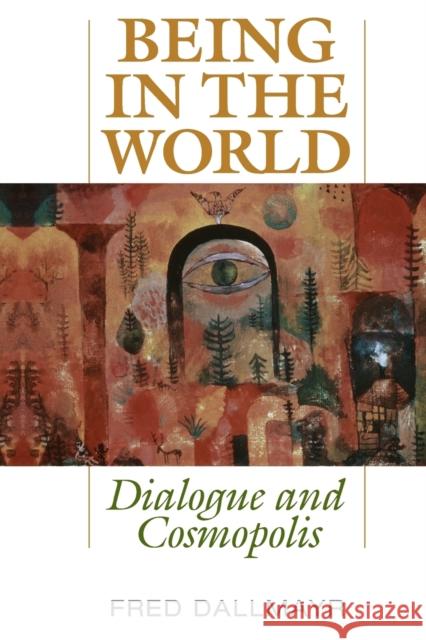Being in the World: Dialogue and Cosmopolis » książka
Being in the World: Dialogue and Cosmopolis
ISBN-13: 9780813166292 / Angielski / Miękka / 2015 / 288 str.
Being in the World: Dialogue and Cosmopolis
ISBN-13: 9780813166292 / Angielski / Miękka / 2015 / 288 str.
(netto: 166,21 VAT: 5%)
Najniższa cena z 30 dni: 174,88
ok. 22 dni roboczych.
Darmowa dostawa!
It is commonly agreed that we live in an age of globalization, but the profound consequences of this development are rarely understood. Usually, globalization is equated with the expansion of economic and financial markets and the proliferation of global networks of communication. In truth, much more is at stake: Traditional concepts of individual and national identity as well as perceived relationships between the self and others are undergoing profound change. Every town has become a potential cosmopolis -- an international city -- affecting the way that people conceptualize the relationship between public order and political practice.In Being in the World, noted political theorist Fred Dallmayr explores the globe's transition from the traditional Westphalian system of states to today's interlocking cosmopolitan network. Drawing upon sacred scriptures as well as the work of ancient philosophers such as Plato and Aristotle and more recent scholars such as Martin Heidegger, Hans-Georg Gadamer, and Raimon Panikkar, this book delves into what Dallmayr calls "being in the world," seen as an aspect of ethical-political engagement. Rather than lamenting current problems, he suggests addressing them through civic education and cosmopolitan citizenship. Dallmayr advocates a politics of the common good, which requires the cultivation of public ethics, open dialogue, and civic responsibility.
It is commonly agreed that we live in an age of globalization, but the profound consequences of this development are rarely understood. Usually, globalization is equated with the expansion of economic and financial markets and the proliferation of global networks of communication. In truth, much more is at stake: Traditional concepts of individual and national identity as well as perceived relationships between the self and others are undergoing profound change. Every town has become a potential cosmopolis-an international city-affecting the way that people conceptualize the relationship between public order and political practice.In Being in the World, noted political theorist Fred Dallmayr explores the globes transition from the traditional Westphalian system of states to todays interlocking cosmopolitan network. Drawing upon sacred scriptures as well as the work of ancient philosophers such as Plato and Aristotle and more recent scholars such as Martin Heidegger, Hans-Georg Gadamer, and Raimon Panikkar, this book delves into what Dallmayr calls "being in the world," seen as an aspect of ethical-political engagement. Rather than lamenting current problems, he suggests addressing them through civic education and cosmopolitan citizenship. Dallmayr advocates a politics of the common good, which requires the cultivation of public ethics, open dialogue, and civic responsibility.











